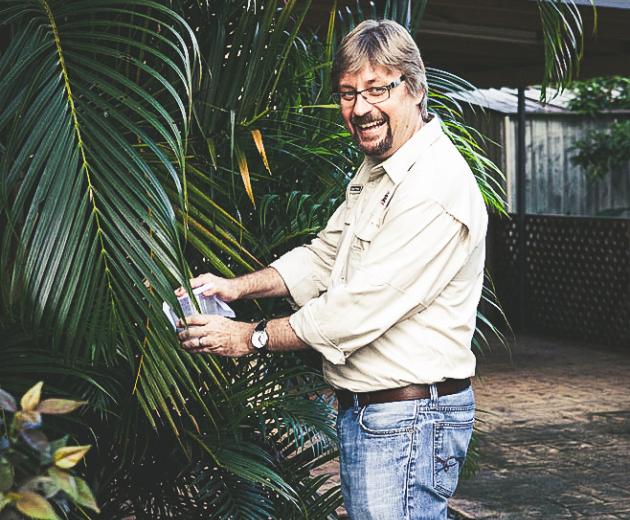Published date: 27 Jan 2021
Back in January 2011, when the World Mosquito Program was known as ‘Eliminate Dengue’, founder and director Scott O’Neill released the contents of a plastic cup into the front yard of a suburban home in Cairns, north Queensland.
While this ten year milestone is indeed a moment to celebrate, it also marks the beginning of a new era for the World Mosquito Program as it expands operations with the aim of protecting 75 million people over the next five years.
Community the key component
Director of Field Entomology, Dr Scott Ritchie was in Cairns as part of the team implementing the first release in 2011. Prior to WMP, he worked in vector control for Queensland Health.
“Every summer we would get dengue outbreaks here is north Queensland,” he says. “Some years it wasn’t that big, some years it was huge. So getting involved with the Wolbachia program was great. It’s been a game changer. How dengue transmission has almost entirely disappeared up here.”
Key to the success of the project in Queensland was getting the residents on board. Some of whom lived in or around areas where 75 years earlier the introduction of cane toads went horribly wrong. Nobody quite knew how this new message was going to be received.
“For years and years, we’d been telling people to tip out water containers and asking if we could come and spray in people’s houses to kill the mosquitoes,” Dr Ritchie says. “It was all ‘spay’em and slay’em as I called it. And to come and tell people ‘oh no, don’t worry about that now. We’re going to release mosquitoes and they’re good mosquitoes and they’re not going to transmit dengue and they’re going to take over from the other ones’. I thought it was going to be interesting to see how we’d go about convincing people of this.”
But more than just accepting the idea, local communities embraced it. They listened to the science, asked questions and voiced their concerns. Eventually allowing releases of mosquitoes around their homes and even getting involved by hosting traps and taking part in releases.
A thing of the past
Long-time Townsville resident Brett Whithead remembers the first release of Wolbachia-mosquitoes in his community.
“Wow. Ten years. It doesn’t seem like ten years since the program was here,” he says. “For me, the key success factor is that no-one’s talking about dengue in Townsville anymore, because it’s really not a thing here. I remember there was a real sense of keenness in the people. I suppose they really did want to see dengue to be a memory in Townsville. We were certainly optimistic and very keen to get involved.”
To date, WMP projects have set out to prove the success of the method. Results from releases in Indonesia, Brazil, Colombia and elsewhere have shown that it works. Now it’s time to ramp things up. To rapidly increase production of Wolbachia-carrying mosquitoes and to take them to high density tropical populations where the burden of dengue is heaviest.
“We want to see Wolbachia used in other countries,” Dr Ritchie explains. “Particularly in countries where they have a lot of dengue. Right now, there’s really big outbreaks happening around the world. We hear all about COVID, but there’s a lot of dengue happening. We’re in 11 countries right now and we want to expand.
“Cairns should be proud. People in north Queensland, Townsville, Charters Towers, Port Douglas...everyone up here should be proud that we played a role in really initiating this and getting it started. And now it’s gone global. Fingers crossed that everything works.”


